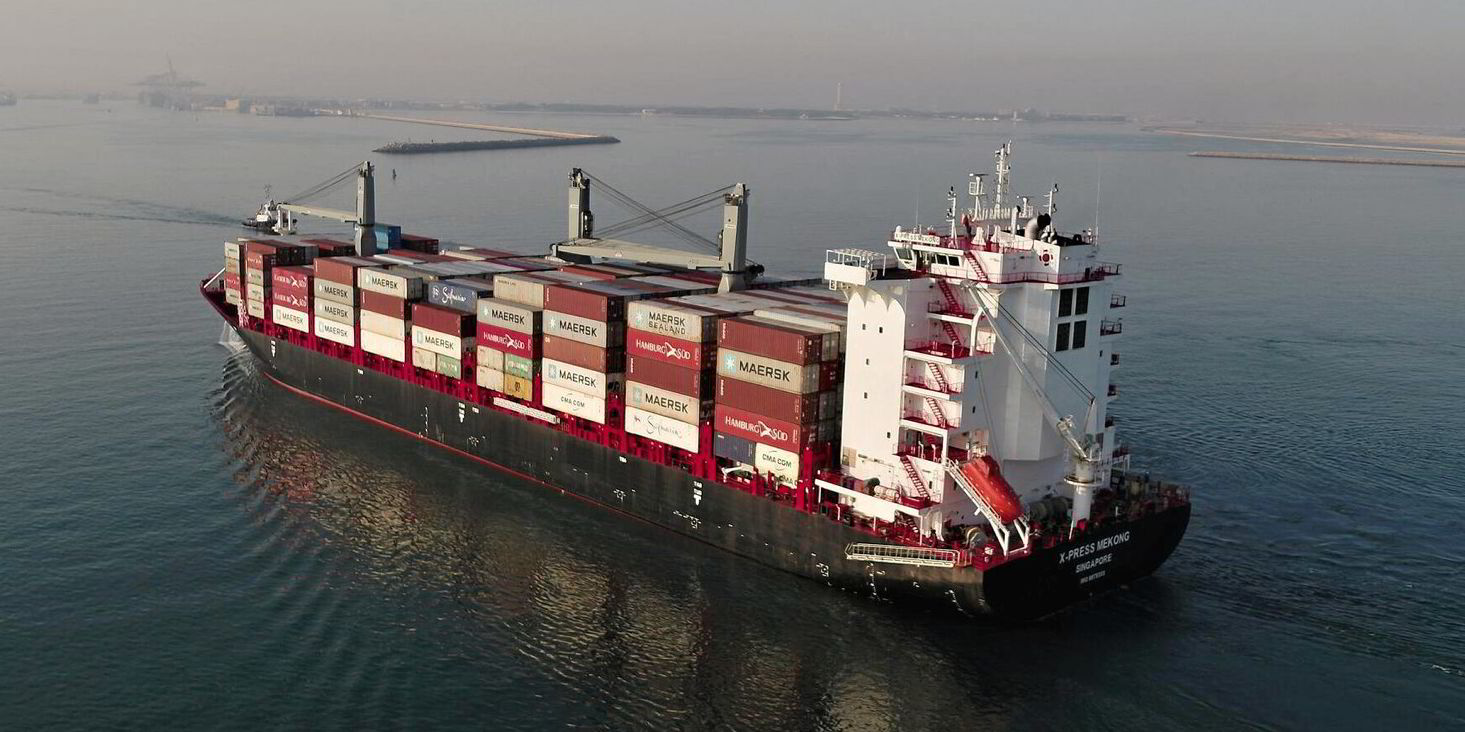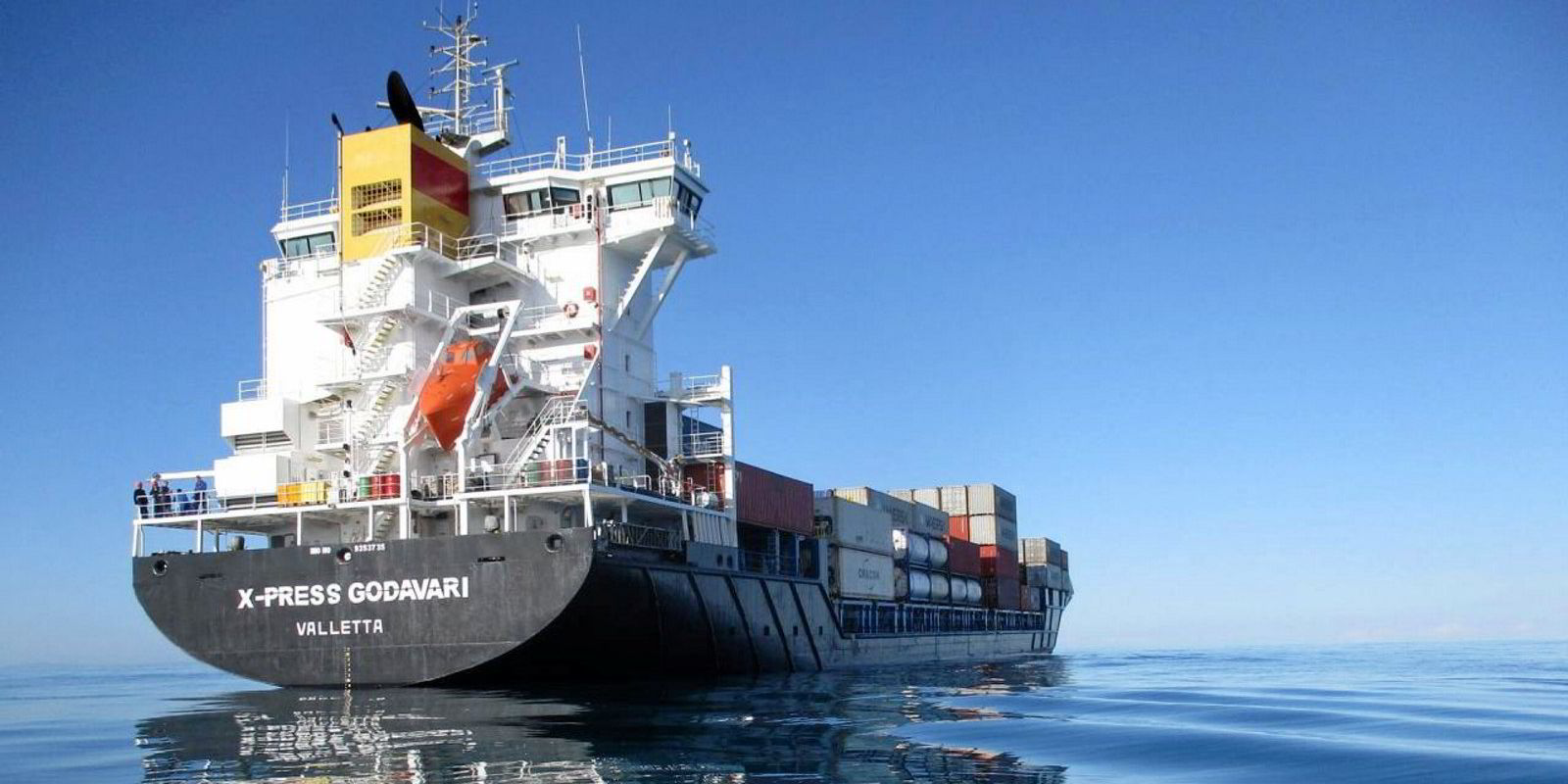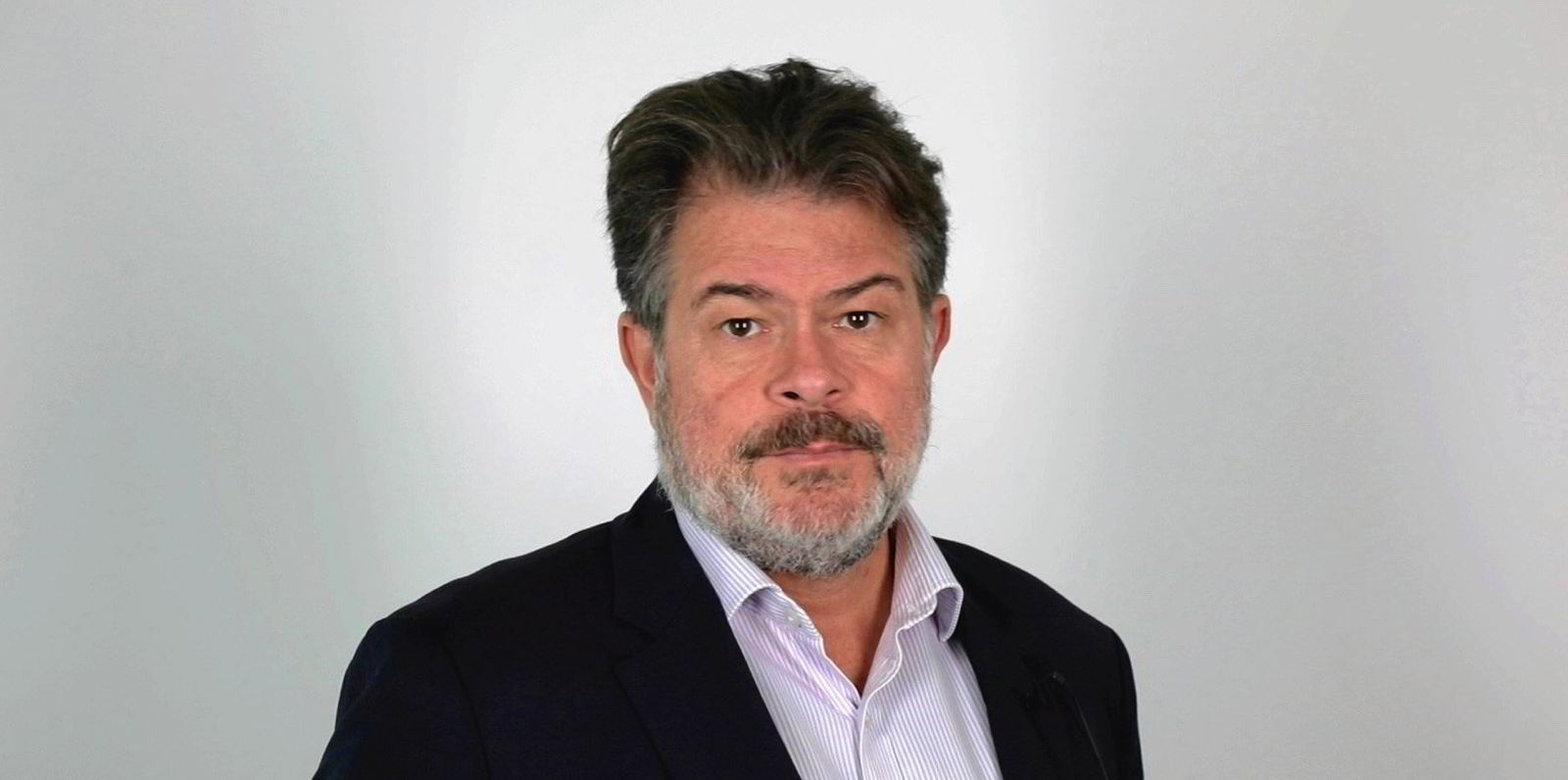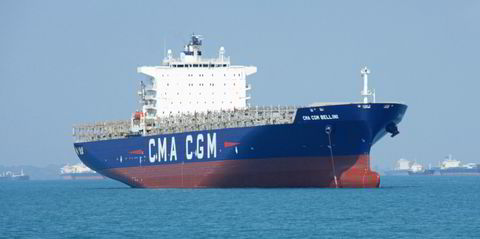X-Press Feeders has begun working on designs for new vessels that will be compliant with the stringent emissions regulations that will come into effect in the future.
Schmulick (Shmuel) Yoskovitz — chief executive of the Singapore-based feeder container giant often referred to under its alter ego, Sea Consortium — told the Marine Money conference in Singapore on Tuesday that operators must order their own ships as most of the traditional tonnage providers of smaller containership are rapidly disappearing.
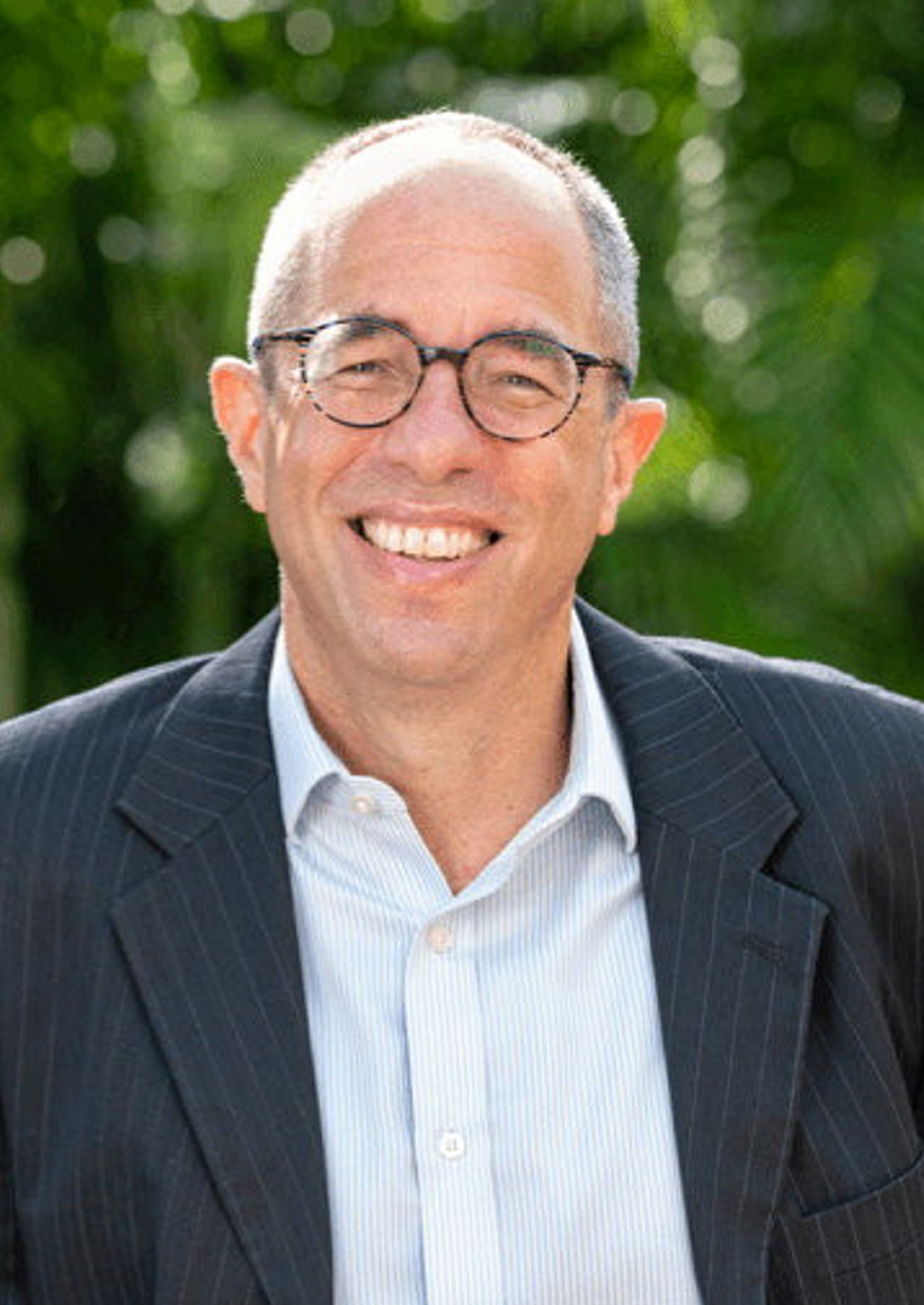
Yoskovitz also stressed that operators who do not invest in the most efficient vessels may find themselves barred from calling at smaller city ports.
Over the past few years, X-Press Feeders has built up an owned fleet of about 50 vessels, all of which were sourced on the secondhand market.
Yoskovitz described the purchases as opportunistic, mostly made during the early part of the current box boom when there was still a decoupling between secondhand prices and the charter market.
“That was an opportunity that is now gone,” he said.
The chief executive said the secondhand ships are intended only as stopgaps while the company builds a new fleet capable of meeting increasingly stringent emissions targets.
This year alone, X-Press Feeders has ordered eight 7,000-teu containership newbuildings at Shanghai Waigaoqiao Shipbuilding.
The company also has three 3,100-teu newbuildings under construction at Zhoushan Changhong International Shipyard for delivery in 2023.
These vessels will be 40% more fuel efficient than the vessels they will replace.
New designs
Yoskovitz said X-Press Feeders was in the process of designing feeder containerships for use on European routes, where tough regional emissions restrictions may result in non-compliant vessels being banned from calling at ports located close to city centres.
“One day we will find city ports won’t accept our ships,” he said.
He added that these ports are the backbone of feedering.
The ships that X-press Feeders is in the process of designing will be built with engines that offer the option of switching to alternative fuels.
The company is working with engine manufacturers to develop engines capable of burning methanol and ammonia, and possibly hydrogen.
Yoskovitz said the ships would initially burn conventional fuel with the aim of retrofitting them when suitable alternative fuels became available.
He said the plan would be to carry out the switch during a vessel’s first special survey.
“We are looking at a staggered approach,” he said.
Yoskovitz said feeder container operators need to look at newbuildings now. His concern is that if they do not, there may be a shortage of tonnage in the future.
“I am very concerned that 41% of the feeder fleet is 14 years or older, and the orderbook is only 6% of the fleet,” he said.
He added that operators could not rely on tonnage providers to supply suitable vessels in the future.
“Who do we talk to? The usual tonnage providers have disappeared,” he said.
Yoskovitz added that Chinese leasing houses are not interested in containerships unless their capacity is in excess of 10,000 teu.
